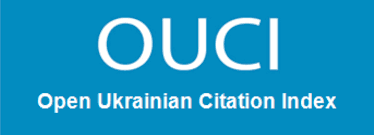PROTEIN INDICES AND THYROID HORMONES IN THE BLOOD OF EWES AND THEIR MILKING UNDER THE USING OF ELEVATED LEVELS OF MINERAL ELEMENTS (S, I, Zn, Cu, Co) AND FILTROPERLIT IN THE DIET
N. P. Sydir, P. V. Stapay
This email address is being protected from spambots. You need JavaScript enabled to view it.
Institute of Animal Biology NAAS; 38 V. Stus St, Lviv, 79034, Ukraine
The data about indices of protein metabolism, thyroid hormones in the ewe’s blood and their milk production under the using in their diets increased levels of mineral elements (S, I, Zn, Cu, Co) by 20 % of the norms and fat supplements in the filtroperlit were presented in the paper.
Our experiment was carried out with three groups of Precos breed mature ewes. The control group fed to the basic diet, balanced by the feeding norms. On the basis of the data analysis on the mineral composition of feed the lack of sulfur, zinc, copper and iodine in the animal’s diet was found. These mineral elements in the diet of the ewes of the control group were adjusted to norm by mineral salts, including sodium sulfate, zinc sulfate, copper carbonate and potassium iodide. The animals of the first experimental group were fed to the basic diet include a mixture of these minerals (and cobalt) to 20 % above norm. Theewes of the second experimental group were fed a mixture of the mineral elements, as well as the sheep of first experimental group, and filtroperlit (per 50 g / per head /per day). The experiment was conducted in winter-stall period, their duration was 92 days.
Addition to the lactating ewe’s basic diet S, I, Zn, Cu, Co over 20 % of norms, and the mixtures of these minerals and fat supplements in the filtroperlit composition positively influenced on the protein metabolism and thyroid gland function, as a result led to their milking increase. In particular, the average daily live weight gain of lambs of the first experimental group increased by 7.6 % and the second experimental group — on 10.2 % compared with the control group. The total protein content in the ewe’s blood of the first experimental group increased by 12.44 % (P<0.001) and the second experimental group — by 28.2 % (P<0.001) compared with the control group. It was shown the albumin content in the ewe’s blood increased in the experimental groups whereas globulin fraction in animal blood tended to decrease, particularly by γ-fraction.
The activity of transamination enzymes, especially aspartate aminotransferase (16.8%, P<0.02) were also increased in the blood of experimental groups. One of the mechanisms for rising of ewe’s milk productivity under the influence of these nutritional factors may be positive effect on the thyroid gland function. In particular, the content of T3 hormone in the animal’s blood of the first experimental group increased by 50.0 % (P<0.01) and the second experimental group — by 68.3 % (P<0.01). Similar changes of T4 content were observed in the experimental groups (39.4 % and 47.9 % (P<0.001) respectively) compared with the control group. It was concluded that the content of S, I, Zn, Cu, Co in the diet of lactating ewes should increase over 20 % from the norm, and the fat content in the ration of sheep must balance.
Keywords: EWES, BLOOD, PROTEIN, THYROXINE, TRIIODOTHYRONINE, IODINE, SULFUR, COPPER, ZINC, COBALT, FILTROPERLIT














